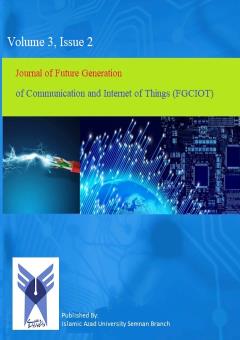The policies and guidelines provided on this page are put in place to protect the quality and integrity of all forms of scholarly practice and research, as well as the reputations of the publications produced by FGCIOT.
Issues covered in this Publication Ethics page are:
1. Redundant Submission: Submission of papers to multiple publications is unethical. It wastes the time of the editors and peer reviewers that form research communities and contribute to the publication of scholarly journals. Any article found to have been submitted to more than one journal, published by FGCIOT or another publisher, will be immediately rejected. Sanctions, such as a ban from submitting further publications for a specified period may also be considered. Authors must inform the editors of journals to which they submit their work about any related papers by any of the authors of the article that have been submitted to the same or other journals.
2. Article Authorship: Those submitting papers should carefully check that all those whose work (in research or writing) contributed to the paper are acknowledged as contributing authors. No one who made a meaningful contribution to the article should be left out. Similarly, individuals who did not make a meaningful contribution should not be included as contributing authors for the sake of prestige or their own referencing quota. To clarify, the list of authors should include all those who can legitimately claim authorship.
3. Plagiarism: Plagiarism is the unauthorized and/or unacknowledged use or imitation of works, language, and ideas of another. Generally, in the context of article publication, plagiarism occurs when one researcher/author uses the words, language, or ideas of another researcher/author without making it clear within the narrative or referencing of the article that this has occurred; that is, passing off a piece of research or text as his or her own. We use powerful tools like Turnitin and Ithenticate to identify papers that have more than 29% similarity report and reject them immediately. Also, the authors of such papers may become deprived of making any further submission for a specified period of time.
4. Dishonesty: authors must use their best endeavors to ensure the material that they submit contains no fictitious data, reference omissions, or false statements.
5. Authorship of the paper: All those who have made significant contributions to the paper should be listed as co-authors.
6. Appeal against the editorial decision: The authors have the right to appeal against any editorial decision. A statement with rebuttal should be sent directly to the Editor-in-Chief.
7. Duties of section editors: Editors should take all reasonable steps to ensure the quality of the edition. Editors’ decisions to accept or reject a paper for publication should be based only on the paper importance, originality, clarity, and the relevance to the journals scope.
8. Authors of a rejected paper can again make a submission that includes answer to all reviewers' comments. However, FGCIOT reserves the right to send the paper to other reviewers rather than the previous ones.


